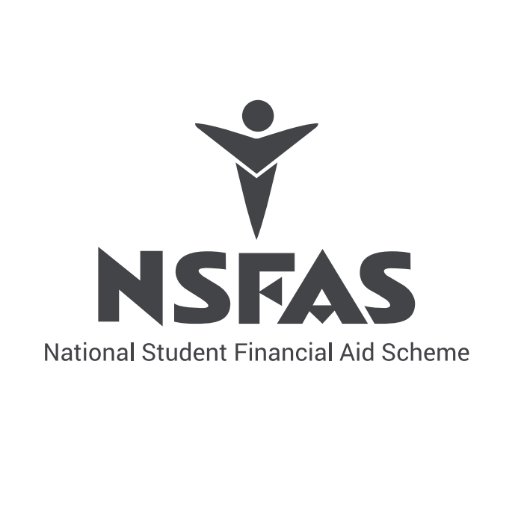
Luckily, You Don’t Have to Choose! NSFAS Can Fund Multiple People in a Household!
Understanding NSFAS Funding for Multiple Individuals
Attending a tertiary education institution can be financially challenging for many individuals and their families. However, in South Africa, the National Student Financial Aid Scheme (NSFAS) offers a bursary program that can assist eligible students in pursuing their undergraduate qualifications and achieving their educational goals. But what happens if there’s more than one person in your household who wants to benefit from the NSFAS bursary? In this article, we’ll provide you with all the essential information on NSFAS funding for multiple individuals in a household, enabling you to make the best decision for your family’s educational aspirations.
Assessing Eligibility for NSFAS Funding
NSFAS considers the household income when determining a student’s eligibility for funding. Fortunately, having a family member who has already qualified for an NSFAS bursary does not exclude other members of the household from applying.
Factors to Consider for NSFAS Funding
It’s important to keep certain factors in mind. If multiple people in your household are studying simultaneously and meet the eligibility criteria, their combined household income will be taken into account during the assessment process.
While NSFAS strives to provide funding for all eligible individuals within a household, this is subject to the availability of funds and other conditions. The funding allowance may be adjusted based on the household income and other relevant factors, but tuition fees are always fully covered.
Individual Assessment and Funding Decisions
It’s crucial to note that the final decision on funding is made on an individual basis, considering the specific circumstances of each applicant and the availability of funds. Hence, it’s highly recommended to submit your application in a timely manner, as late applications are more likely to be rejected due to funding limitations. Although the South African government allocates a substantial R49 billion annually to the NSFAS scheme, there is still a finite number of students that can be accommodated.
Ensuring Eligibility
However, if your household income falls below R350,000 per year, and all individuals meet the other eligibility criteria, there should be no issue in securing NSFAS funding.
Understanding NSFAS Means Testing
NSFAS utilizes a process called means testing to evaluate household income. This assessment method takes into account the student’s family or household income and expenses, ensuring a fair evaluation of their financial needs.
Factors Considered in Means Testing
The means test considers various aspects, including the income and expenses of the student’s household, such as salaries, business and rental income, piecework, and other income sources. Additionally, NSFAS considers the number of dependents, overall family size, geographic region, and other factors that may impact the household’s financial situation. Notably, NSFAS accounts for gross incomes while excluding mandatory tax from the equation.
Supporting Documentation for Means Testing
To determine the household income accurately, NSFAS requires students and their parent(s) or guardian(s) to provide supporting documentation. This documentation may include payslips, bank statements, or tax returns. Furthermore, the information provided on the application form is used to assess income and expenses during the means testing process.
Importance of Accurate Information
It’s of utmost importance to provide complete and accurate information during the means testing process. This ensures an accurate assessment of your financial need and increases the chances of receiving the appropriate funding.
Maximum Household Income for NSFAS
For most applicants, the maximum household income considered for NSFAS funding is capped at R350,000 per year or R29,100 per month. However, individuals with recognized disabilities under South African law have a higher threshold of up to R600,000 per year. This accommodation is made to account for the additional costs associated with living with a disability.
Requirement for Proof of Income
NSFAS requires applicants to submit verifiable proof of income. It is not possible to apply for NSFAS without providing the necessary documentation. The proof of income is a crucial component of the means test and plays a significant role in determining an applicant’s eligibility for funding.
Necessary Documentation for NSFAS Application
To apply for NSFAS funding, applicants must provide supporting documentation such as payslips, bank statements, or tax returns to verify their income and financial situation. If you are a dependent, you will need to provide this documentation for your parents or guardians.
Alternative Arrangements
If you encounter difficulties in providing the required documentation, it’s advisable to contact NSFAS to discuss your situation. They may be able to make alternative arrangements or accept non-traditional means of proving your income. However, it is crucial to understand that providing false or inaccurate information may lead to application rejection or termination of funding.
Contacting NSFAS for Assistance
If you have any questions regarding the required documentation or the NSFAS application process, you can contact NSFAS directly or visit their website for further information.
Early Application Increases Success Chances
Lastly, it’s worth emphasizing that having a sibling or family member who already benefits from an NSFAS bursary does not hinder your chances of being considered for funding. To maximize your chances of success, it is always recommended to submit your application as early as possible.
Conclusion
The NSFAS bursary program in South Africa provides a valuable opportunity for individuals from economically disadvantaged backgrounds to pursue higher education. Understanding how NSFAS funding works for multiple individuals within a household is essential for making informed decisions. By considering the eligibility criteria, means testing process, documentation requirements, and application deadlines, you can increase your chances of securing NSFAS funding and realizing your educational aspirations.
Was this helpful?
0 / 0
#Bursaries #National Student Financial Aid Scheme (NSFAS)